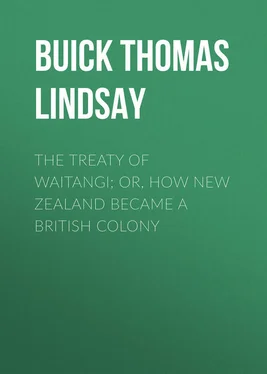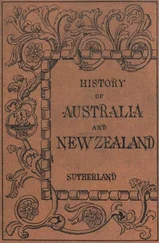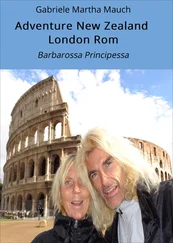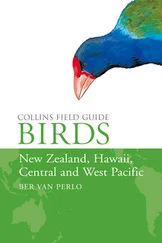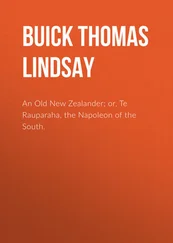Thomas Buick - The Treaty of Waitangi; or, how New Zealand became a British Colony
Здесь есть возможность читать онлайн «Thomas Buick - The Treaty of Waitangi; or, how New Zealand became a British Colony» — ознакомительный отрывок электронной книги совершенно бесплатно, а после прочтения отрывка купить полную версию. В некоторых случаях можно слушать аудио, скачать через торрент в формате fb2 и присутствует краткое содержание. Жанр: foreign_antique, foreign_prose, на английском языке. Описание произведения, (предисловие) а так же отзывы посетителей доступны на портале библиотеки ЛибКат.
- Название:The Treaty of Waitangi; or, how New Zealand became a British Colony
- Автор:
- Жанр:
- Год:неизвестен
- ISBN:нет данных
- Рейтинг книги:5 / 5. Голосов: 1
-
Избранное:Добавить в избранное
- Отзывы:
-
Ваша оценка:
- 100
- 1
- 2
- 3
- 4
- 5
The Treaty of Waitangi; or, how New Zealand became a British Colony: краткое содержание, описание и аннотация
Предлагаем к чтению аннотацию, описание, краткое содержание или предисловие (зависит от того, что написал сам автор книги «The Treaty of Waitangi; or, how New Zealand became a British Colony»). Если вы не нашли необходимую информацию о книге — напишите в комментариях, мы постараемся отыскать её.
The Treaty of Waitangi; or, how New Zealand became a British Colony — читать онлайн ознакомительный отрывок
Ниже представлен текст книги, разбитый по страницам. Система сохранения места последней прочитанной страницы, позволяет с удобством читать онлайн бесплатно книгу «The Treaty of Waitangi; or, how New Zealand became a British Colony», без необходимости каждый раз заново искать на чём Вы остановились. Поставьте закладку, и сможете в любой момент перейти на страницу, на которой закончили чтение.
Интервал:
Закладка:
The Herald , a frigate of twenty guns, commanded by Captain Nias, lay in Spring Cove, waiting to convey the Queen's representative and his party to New Zealand. 49 49 The ship Westminster was also engaged to convey stores to New Zealand so soon as word should be received of the success of Captain Hobson's mission. The Westminster reached the Bay of Islands on March 17, 1840, bringing with her Mr. and Mrs. Burrows and Mr. and Mrs. Matthew for the C.M.S. Mission.
At six o'clock on the evening of Saturday the 18th the staff appointed to accompany the Consul joined the vessel, and at a somewhat later hour Captain Hobson himself went on board. Under the influence of a fine N.E. wind, a full moon shining down upon the harbour, the Herald left Port Jackson and headed for the Bay of Islands. Fine weather was experienced in the Tasman Sea and on Sunday the 26th, while a gentle breeze filled the sails and soft zephyrs whispered through the cordage, Captain Nias conducted Divine service on the gun deck, which was attended by the whole ship's company, and "a more beautiful and impressive scene I never witnessed," is the description of the ceremony given by Mr. Felton Mathew, who was coming with Hobson as the Surveyor-General to the new colony. At daylight on the following morning the Three Kings were sighted, and shortly after the mainland came into view. Two days were spent in beating up the coast, and again at daylight on the 29th, the Herald entered the Bay of Islands, drifting with the tide, there being not a breath of wind. All the morning was spent in this tedious process, and it was not till eleven o'clock that the anchor was cast in front of the little town of Kororareka. 50 50 I am indebted to Mr. H. M. Stowell (Hare Hongi) for the following note on the origin and meaning of Kororareka ; the ancient name of the town of Russell. Kororareka has several original native names: 1. O-kiato : kiato means confined, of circumscribed area; and this describes its situation exactly. 2. Wai-taha-rua : This means, two-sided water, or, the double waterside. This also describes its situation for it has a fine frontage to the Bay itself, and an arm of the Bay runs up to its back-door (so to speak). 3. Kororareka : Korora-reka , means Sweet-penguin. This has remained its favourite name, and it originated in the following incident: An old high chief lay here dying. He expressed a wish to taste a little of the penguin bird before dying. Now this bird is a rarity in those waters. So many young men of the tribe went off in their canoes and scoured the headlands, isles, and islets for miles around the Bay. At length two young men were fortunate enough to discover a penguin, a real Korora , or blue penguin, which they managed to capture. They hastened back with their catch, and the bird was feathered and cleaned and boiled in the ancient manner of boiling. This was to place the bird in a deep wooden bowl, cover it well with water, and keep that water boiling by dropping red-hot stones in it from an oven by its side. The bird being cooked in this way was served up to the old chief, but being unable to chew or to eat any portion he begged for a little of the water (soup) in which it had been boiled. This was brought to him, and having been assisted to a partially seated position he drank some of the "soup," after which he sank back on his pillow, murmured: " Ka reka te Korora " and immediately expired. Now, Ka reka te Korora , means: How sweet is the Penguin.
Across the Bay the Union Jack was flying in front of Mr. Busby's residence, but what most attracted the attention and excited the interest of those on board was the French tricolour floating from a staff upon the hill-side above the township. "What this may indicate," wrote Mr. Mathew in his diary, "we have yet to learn – whether it is merely a French Missionary establishment or whether a French frigate is at anchor in the Bay and has anticipated us, we shall soon discover."
CHAPTER IV
THE MAORI MAGNA CHARTA
So soon as the Herald was come to anchor she was boarded by Mr. Busby and three of the resident Missionaries, from whom Captain Hobson learned that his apprehensions regarding French occupancy were groundless, the tricolour on the hill indicating no more than the whereabouts of Bishop Pompallier's church. One of the visitors who had come thus early to pay his respects to the new Governor was Mr. Colenso, with whom Captain Hobson entered into an arrangement for the printing, at the press of the Church Missionary Society, of circular letters inviting the chiefs to meet him at Mr. Busby's residence at Waitangi on the following Wednesday, for the purpose of discussing the proposals of the British Government; and to all the British residents requesting their presence at the Mission church at Kororareka on the following day, there to hear Her Majesty's Commission under the Great Seal, extending the limits of the colony of New South Wales, and also Her Majesty's Commission under the Royal signet and Sign manual, appointing Captain Hobson as Lieutenant-Governor over such part of that colony as might be acquired in Sovereignty in New Zealand. These invitations were in circulation on the following morning, messengers being despatched to inform the chiefs, while the European residents perused the notice issued to them with marked interest and mixed feelings. During the afternoon Captain Hobson, accompanied by Captain Nias and his officers, landed on the Kororareka beach, and walking to the church there read his Letters Patent in the presence of the assembled people, forty of whom so far signified their approval of the proceedings as to subscribe their names to the document. The proclamations framed by Sir George Gipps and his Executive were also read, the first announcing that Her Majesty's authority had been asserted over British subjects in New Zealand; the second, which was by no means so popular, acquainting the public of the fact that Her Majesty did not deem it expedient to acknowledge as valid any titles to land in New Zealand which were not derived from, or confirmed by, a grant from the Crown.
These ceremonies concluded, the intervening days were spent in completing arrangements for the fateful gathering on the 5th, not the least arduous duty being the drafting of the treaty, upon the acceptance or rejection of which everything would depend. The exigencies of the position demanded that the greatest care should be exercised in framing the terms of the document, 51 51 The number and extent of the erasures in the original draft indicate that the greatest care was taken in its composition by those concerned.
because while it was desired that the proposal of the Crown should be stated with the utmost frankness, the least looseness of expression might imperil the whole project by raising ungrounded alarm in the minds of the natives.
To guard against this it was necessary that those concerned in the preparation of the treaty should have not only a full knowledge of the Crown's intentions, but also an intimate acquaintance with the subtleties of the native character. This latter qualification neither Captain Hobson nor the members of his staff possessed even in a remote degree. To add to their difficulties, Captain Hobson began now to experience the first symptoms of that illness which in less than three years proved fatal to him. He became indisposed, and was unable to leave the Herald . In the seclusion of his cabin, however, he devoted himself to an effort to reduce to concrete terms the obligations in which the Crown was prepared to involve itself, and the reciprocating advantages it would require from the natives. In this he achieved but meagre success, and conscious of failure he despatched his chief clerk, Mr. George Cooper, to Mr. Busby, giving him his rough notes together with a request that the erstwhile Resident might favour him with his opinion as to their suitability as the basis of the treaty.
Читать дальшеИнтервал:
Закладка:
Похожие книги на «The Treaty of Waitangi; or, how New Zealand became a British Colony»
Представляем Вашему вниманию похожие книги на «The Treaty of Waitangi; or, how New Zealand became a British Colony» списком для выбора. Мы отобрали схожую по названию и смыслу литературу в надежде предоставить читателям больше вариантов отыскать новые, интересные, ещё непрочитанные произведения.
Обсуждение, отзывы о книге «The Treaty of Waitangi; or, how New Zealand became a British Colony» и просто собственные мнения читателей. Оставьте ваши комментарии, напишите, что Вы думаете о произведении, его смысле или главных героях. Укажите что конкретно понравилось, а что нет, и почему Вы так считаете.
